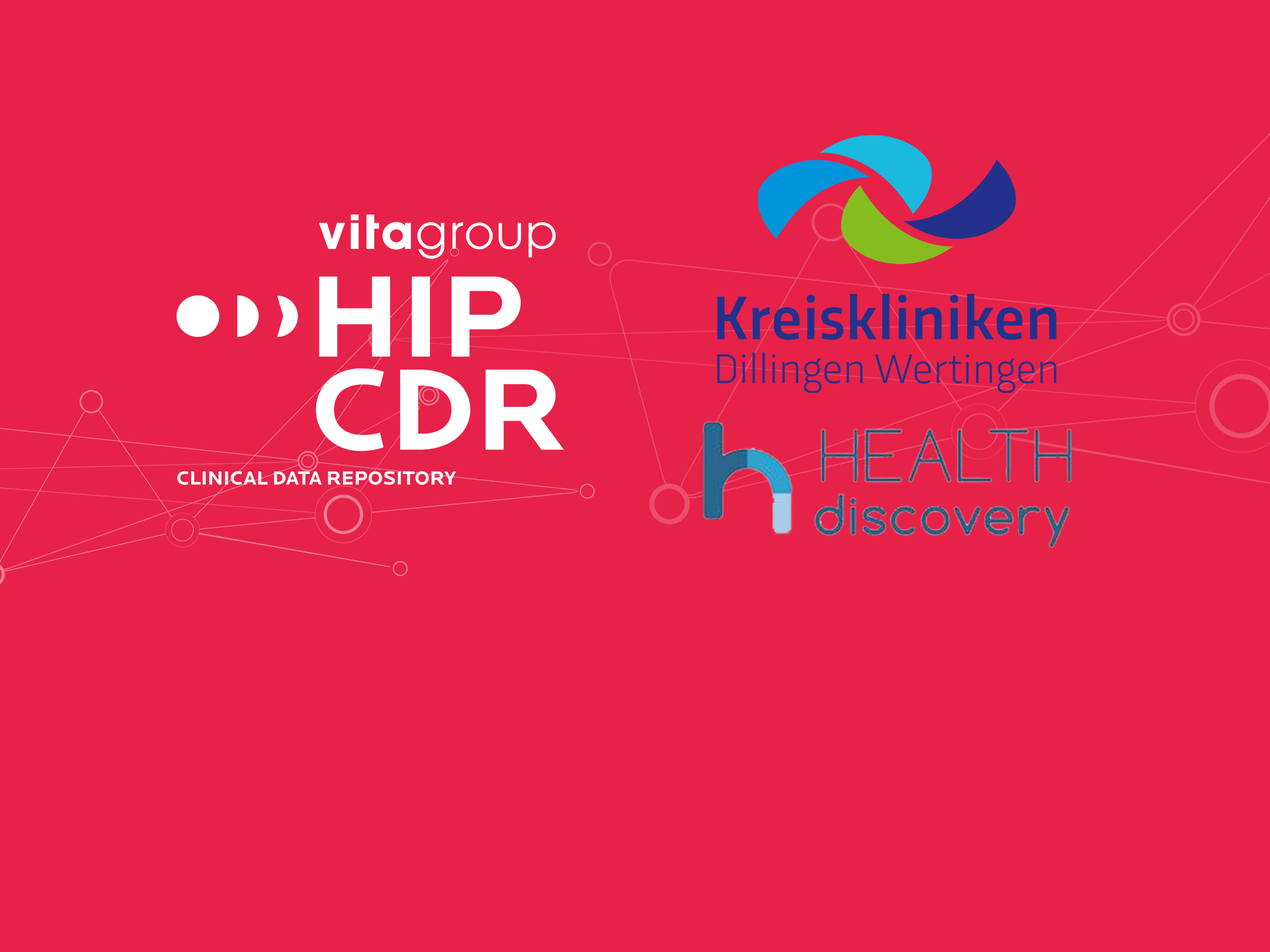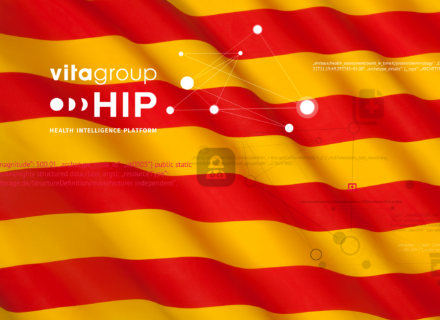Case-based coding with the HIP CDR and Health Discovery
How Dillingen-Wertingen District Hospitals Improve Documentation and Profitability
Faster documentation as part of medical controlling, minimised loss of information and prompt, optimised case-related coding – these are the goals of the Dillingen-Wertingen district hospitals. This is to be achieved with the help of Health Discovery from Averbis and HIP CDR from vitagroup. The proof of concept has now been successfully launched.

Billing treatment cases promptly is still a major challenge for many clinics. This is because the coding required for billing is complex, error-prone, repetitive and time-consuming. Automating and optimising the underlying processes using intelligent systems offers clinics great potential to improve their documentation and efficiency, thus avoiding billing problems and lost revenue.
The stage is set: with vitagroup’s HIP CDR
With the successful implementation of the HIP CDR in May this year, the Dillingen-Wertingen district hospitals have laid the foundations for optimising their case-related coding using intelligent processes. Thanks to HIP CDR, the hospital group can now store all health data centrally and in a highly structured manner. This makes the data available to all other systems at all times.
Questions?
Read more about the successful use of HIP CDR in the Dillingen Wertingen district hospitals.
Another advantage: the HIP CDR allows the district hospitals to select and integrate systems for each area of application on a best-of-breed basis – regardless of the manufacturer. As the optimal system for supporting the partial automation of case-related coding, the Dillingen-Wertingen district hospitals have identified Health Discovery from Averbis, an AI platform for structuring healthcare data.
Best-of-breed: Optimise coding and billing with Health Discovery
Health Discovery uses artificial intelligence and machine learning to support coding and billing in hospitals. With Health Discovery, more than 50 medical entities such as diagnoses, medications, laboratory values and vital parameters can be accurately extracted and translated into common standards such as FHIR, SNOMED-CT, ICD-10 and LOINC. The proof of concept at Kreiskliniken Dillingen-Wertingen initially focuses on diagnoses that are essential for coding and billing in hospitals.
This enables the automatic identification of the diagnoses made and provides the corresponding documents in the texts. This means that large volumes of clinical documents, such as doctors’ letters, no longer need to be viewed manually, and coding specialists can concentrate on the essentials of their work, saving enormous amounts of time and achieving more billing in less time.
Proof of Concept project successfully launched
A few months ago, vitagroup, Averbis and the district hospitals started working on the requirements and concept for case-related coding using Health Discovery based on HIP CDR. The project has now been successfully launched. “We are very confident that the new intelligent processes will enable us to significantly improve the quality of documentation and to complete and bill cases more quickly,” said Timur Kaya, Head of Digitalisation & IT Department, Dillingen-Wertingen District Hospitals. “We are delighted to be able to realise this innovative project with vitagroup and Averbis. More exciting digitisation projects are already in the pipeline.”

We are delighted to be able to realise this innovative project with vitagroup and Averbis.
Timur Kaya
Head of the Digitalisation & IT Department, Dillingen-Wertingen regional hospitals
Read also:
A strong partnership – how vitagroup and Averbis are working together to improve care with high-quality data



